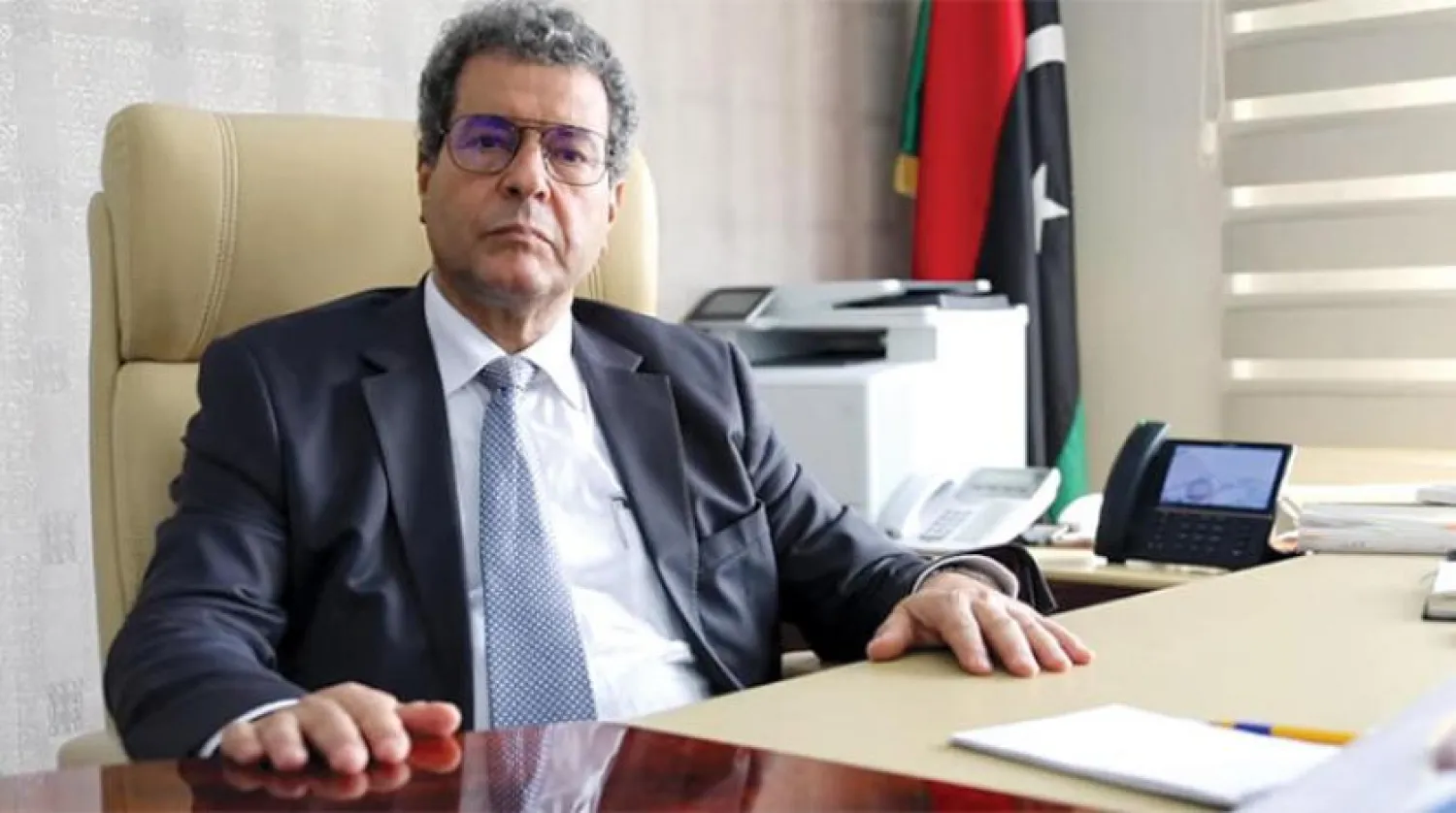Libyan Minister of Oil and Gas Mohamed Oun hoped the oil sector could avoid any political strife or conflicts the country might witness, especially with the elections scheduled for December.
In an interview with Asharq Al-Awsat, Oun called upon everyone to ensure oil fields remain open, stressing that no party exploits the oil sector.
He warned that closing the fields, especially if it extends to large lots, will cause a decline in oil revenues and destroy Libya's reputation in the market.
The minister cautioned that Libya would not be able to address the issue in the long term, forcing customers to search for alternatives.
He continued, "We currently aim to raise the production from 1.3 million barrels per day (bpd) to 1.5 million by the end of this year, a goal that can be achieved if we can establish some projects in the newly discovered fields and develop technical facilities in the seven fields that military operations have damaged."
The minister downplayed fears that the election would be affected by the competition between companies and Western countries that control significant investment shares in the Libyan oil sector.
"Competition between companies will begin if we offer sites for drilling and exploration, whether on land or at sea, but we have not done this yet," said the minister, noting that Libya's discovered oil wealth does not exceed 40 percent.
He indicated that exploring for oil is at the forefront of the ministry's priorities, fearing it may be wasted as the world heads towards adopting alternative energies.
Libya is probably the top African country in terms of oil reserves, and according to the Qatar Gas forum, it has approximately 52 trillion cubic feet. However, estimates indicate that there are 80 trillion cubic feet, according to the minister.
Turkish President Recep Tayyip Erdogan called upon his Azerbaijani counterpart Ilham Aliyev to cooperate in developing oil fields in Libya.
However, Oun indicated that he had not heard the statements directly from the Turkish president, noting that the legal procedures followed in the country offer exploration tenders to international companies, and they submit their offers.
Libya is not in direct contact with Turkey, and "we have not received any written documents in this regard. No contracts have been granted during recent years by any party in the Libyan state, and perhaps the Turkish president intended in his invitation to his Azerbaijani counterpart to launch the cooperation between both oil companies to win one exploration block whenever offered by the Libyan state."
He asserted: "Turkey does not have any shares in the Libyan oil sector."
In 2005, Turkish companies won three plots for exploration in the Libyan state's tender, found oil in one of them, and then exited the country because of force majeure after the February 17 revolution.
Last week, the minister denounced the statements of US ambassador Richard Norland after he met with the National Oil Company Chairman, Mustafa Sanallah, saying they are inappropriate and evident intervention in Libyan domestic affairs.
He explained that the diplomat’s statement discussed the ministry's responsibilities, which is unacceptable.
The ministry is sovereign, but it does not distribute the revenues. Its mission is to monitor the country's oil wealth, extract, process, and export crude oil, and then supply the oil revenues to the Ministry of Finance or the Central Bank.
Oun asserted that the Petroleum Facilities Guard are now part of the support forces affiliated with the state authority, and closure is an individual act.









